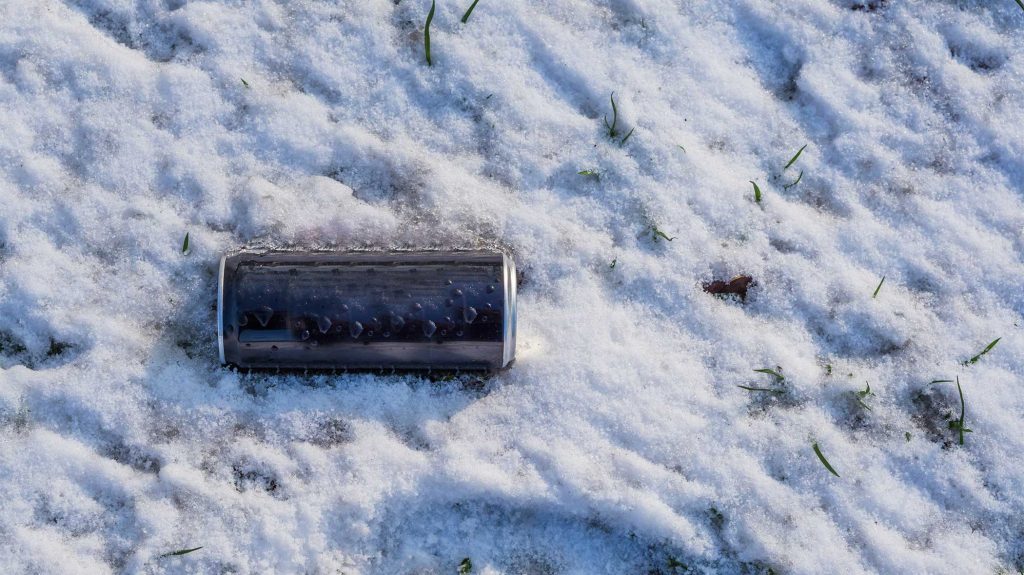Have you ever heard someone claim that people drink more in the winter months? While it might sound like a myth, it actually has scientific backing.
According to a 2018 study published in the journal Hepatology, winter increases your risk of alcohol consumption and alcoholic cirrhosis (a liver disease caused by heavy drinking). Here’s why.
In winter, people drink more alcohol for four main reasons:
1. To Stay Warm
Alcohol is a vasodilator, which means it widens blood vessels and increases blood flow. These effects make your body feel warm (although they don’t actually raise your body temperature).
In cold weather, your body starts craving sources of warmth, including alcohol. That’s why people who live in colder climates tend to drink more than those in warmer climates (according to data from the World Health Organization and the World Meteorological Organization).
People in cold climates also have higher rates of alcohol-related illness. That’s because, over time, frequent alcohol use raises your blood pressure, which causes your blood vessels to narrow instead of widen. Your heart must then pump twice as hard, increasing your risk of heart disease and stroke.
2. To Cope With Seasonal Depression & Anxiety
Sunlight boosts your mood and keeps you calm. Because winter includes shorter hours of sunlight, it brings higher rates of depression and anxiety. To cope with these mental health concerns, many people turn to alcohol.
Indeed, drinking alcohol can make you feel relaxed and happy at first. Over time, though, it will only make your mental health worse. That’s because alcohol is a depressant that can cause various depressive symptoms, including:
- irritability
- anxiety
- hopelessness
- trouble concentrating
- fatigue
- changes in eating or sleeping habits
- persistent physical pains
If you struggle with seasonal depression or anxiety, stay away from alcohol. Instead, seek mental health counseling. Your counselor can recommend a variety of coping strategies, including cognitive behavioral therapy, exercise, journaling, light therapy, and medication.
3. To Fight Boredom
If winter’s frigid temperatures keep you inside, you’ll likely get bored. According to the United States National Library of Medicine, boredom often leads people to drink more.
To ward off winter boredom without risking your health, try these sober activities:
- reading
- playing board games or video games
- solving puzzles
- watching movies
- playing an instrument
- painting or drawing
- cooking soup, chili, or other warm, cozy meals
4. To Celebrate
Although winter can keep you cooped up indoors, it also brings numerous celebrations, many of which are alcohol-heavy. Even if you’re not a big drinker, events like New Year’s Eve, the Super Bowl, and Mardi Gras may tempt you to binge drink. Resist the temptation by trying these tips:
- drive yourself to the event so you can leave the moment you feel close to binge drinking
- bring your own non-alcoholic drinks, and disguise them in red solo cups so no one asks if you’d prefer booze
- bring a sober friend to offer support
Dangers Of Alcohol Abuse
No matter the time of year, excessive drinking harms your health in numerous ways. According to the National Institute on Alcohol Abuse and Alcoholism (NIAAA), there are two main types of excessive drinking: binge drinking and heavy drinking.
Binge drinking occurs when:
- a woman has 4 or more alcoholic drinks in about 2 hours
- a man has 5 or more alcoholic drinks in about 2 hours
Heavy drinking occurs when:
- a woman has more than 3 alcoholic drinks in one day or more than 7 alcoholic drinks per week
- a man has more than 4 alcoholic drinks in one day or more than 14 drinks per week
Both of these drinking patterns pose a variety of health risks, including:
- liver disease
- heart disease
- stroke
- certain cancers, including cancer of the breast, liver, colon, rectum, head, and neck
- digestive issues
- dementia and other memory problems
Alcohol Use Disorder
Excessive drinking can also lead to alcohol use disorder (also called alcohol addiction). This disease makes you feel unable to stop drinking alcohol despite negative consequences. Other signs include:
- loss of motivation
- mood swings
- physical dependence (experiencing withdrawal symptoms, such as sweating and trouble sleeping, when you don’t drink alcohol)
- tolerance (needing increasingly larger or more frequent drinks to feel intoxicated)
To reduce your risk of these issues, drink in moderation. That means you should have no more than one drink a day if you’re a woman and no more than two drinks a day if you’re a man. Keep in mind that even moderate drinking can harm your health. The only way to completely avoid the negative effects of alcohol is to stay sober.
If you or someone you love has a drinking problem, please contact a Northeast Addictions Treatment Center specialist. We provide a variety of evidence-based treatments for alcohol abuse, including family counseling and medication-assisted treatment.
Sources:
American Association for the Study of Liver Diseases — Colder Weather and Fewer Sunlight Hours Increase Alcohol Consumption and Alcoholic Cirrhosis Worldwide
Centers for Disease Control and Prevention — Drinking too much alcohol can harm your health
National Institute on Alcohol Abuse and Alcoholism — Drinking Levels Defined
United States National Library of Medicine — Myths about drinking alcohol


